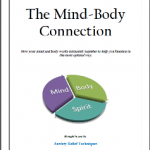Tips To Help You With Anxiety and Panic Attacks
If you are always looking for little tips to help you get through your day, here are a few. The most important step is to learn to be aware of your emotions and body signals, so that you can recognize the symptoms of a panic attack prior to one occurring. To remember all the little things, keep a journal to log any thoughts or events that seem to bring on symptoms of an attack. Look over your journal frequently and identify any possible triggers, so that the next time a trigger occurs you will be prepared to divert your attention away from the troublesome trigger, and possibly avoid an attack altogether.
Finding The Triggers and Taking Control
Figuring out what triggers panic attacks is critical for getting them under control. It is the hardest thing to find…but when you do, it can help you incredibly! You won’t know how to stop something from happening if you don’t know what triggers it. If you are in the midst of a panic attack, try as hard as you can to take back the control of your emotions and actions to try to decrease the duration of the episode. Sometimes the only way to beat your fears is to fight back against them. I know it’s hard fighting your own self…I am not saying it is easy.
- Watch out for things that increase your anxiety level. When it comes to your anxiety and stress, you need to be your own best advocate. As you become more conscious of your changing levels of stress in response to different situations, it will help you better manage the anxiety you feel. Being more self aware can lessen the intensity should you have any future anxiety attacks.
- Seeking help from a counselor can be so helpful, especially if you can find one that you ‘click’ with. If you have friends or family members that are supportive that can help too. Therapists and counselors are trained in dealing with the symptoms and getting to the root cause of the attacks, and they can help you with strategies to combat and cope with symptoms. There are also anxiety help programs you can follow too.
- Go for long leisurely drives to places you enjoy. Use the confines of your personal space to surround yourself with positive thoughts and energy. Do you like the beach, the country, the mountains? Go to places that make you feel calm.
Preventing Panic Attacks
- Do not allow the fear of a panic attack to actually making the attack worse. You need to understand (and I know you already realize) that the panic attack cannot hurt you. It is helpful to continually remind yourself that panic attacks cause no permanent harm. Just as you have associated these negative feelings with panic attacks, you can train yourself to to think about positive things instead.
- Rather than learning to treat the actual attack, focus on practicing the behaviors and thoughts that will avert one. Repeat positive thoughts to yourself, stay in the present and flood yourself with good thoughts when you sense negativity start to creep in.
- If you often have increased anxiety, use a timer to remind you to engage in breathing exercises and set it to go off every 30 minutes. Spend 1 to 2 minutes every thirty minutes taking deep breaths in order to relax. This way, you can give your body more oxygen while refocusing. Maintaining this activity will create a habit after a while. You may like to try belly breathing or diaphragmatic breathing exercises.
- It is extremely important that you keep your symptoms from overwhelming you when a panic attack strikes. Relaxing can prevent your anxiety symptoms from controlling how you feel. Rather than letting the panic attack go through you, imagine that it is going around you. The most important thing to consider is the way you are breathing. Try to breathe slowly and deeply, as short breaths can yield stress and anxiety. You will feel relaxed after the adrenalin burns off. You can turn a negative into a positive by putting the adrenaline to use and cleaning your home. This will help you focus on something else while being productive.
- Stretch your facial muscles, or roll your head in circles. You can really stretch your back muscles by rolling your shoulders. These techniques may all help to stop your attack from happening in the first place.
Experts say that the root causes in adults can often be found in the way people were parented as a child. One such link is excessive expectations being placed on children at a young age. So please, try to avoid imposing aspirations on your child that may not be realistic, or worse, that they have no interest of their own in. This can prevent child anxiety and severe complications from occurring later in life.
If you are the type of person who experiences recurrent episodes, you must focus on getting adequate rest. An uneasy mind results from lack of sleep and increases your chances. Talk to your doctor if you experience any difficulty sleeping, they may be able to help you.
Often the fear of the attack is what brings it on! So try not to focus on the things that you know trigger your attacks or this may cause the feelings to arise that are associated with those triggers. Those are the exact same thoughts that can cause an attack itself. It’s the same idea as hearing an advertisement jingle. Once you hear it, you can’t get it out of your head.
Try to follow the anxiety relief techniques in this article to the fullest extent. When you follow this advice, you may be able to overcome your panic attacks completely. In the event that you do suffer an attack, the provided information will at least help you lessen the intensity. There are also natural supplements for anxiety panic attacks to get you in balance naturally. to help you if necessary.
Affiliate Disclosure
My website contains affiliate links, which means if you purchase any products mentioned in my articles, I may receive a commission. If you do, thank you!






Take a look into getting some cognitive behavioral therapy for your panic attacks. These treatments and sessions with licensed professionals have helped many people and could help you too. Do some online research to find practitioners who specialize in the treatment of anxiety and panic disorders, so that you can find one who is accredited and experienced.
Having therapy with a psychiatrist or psychologist is extremely beneficial. They can help you in so many ways, depending on the depth and severity of your attacks.